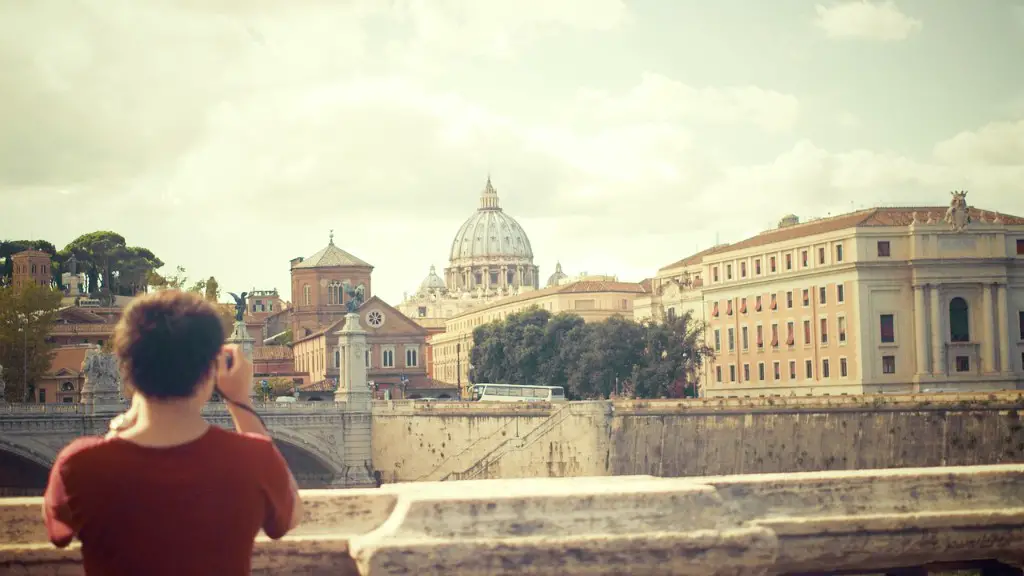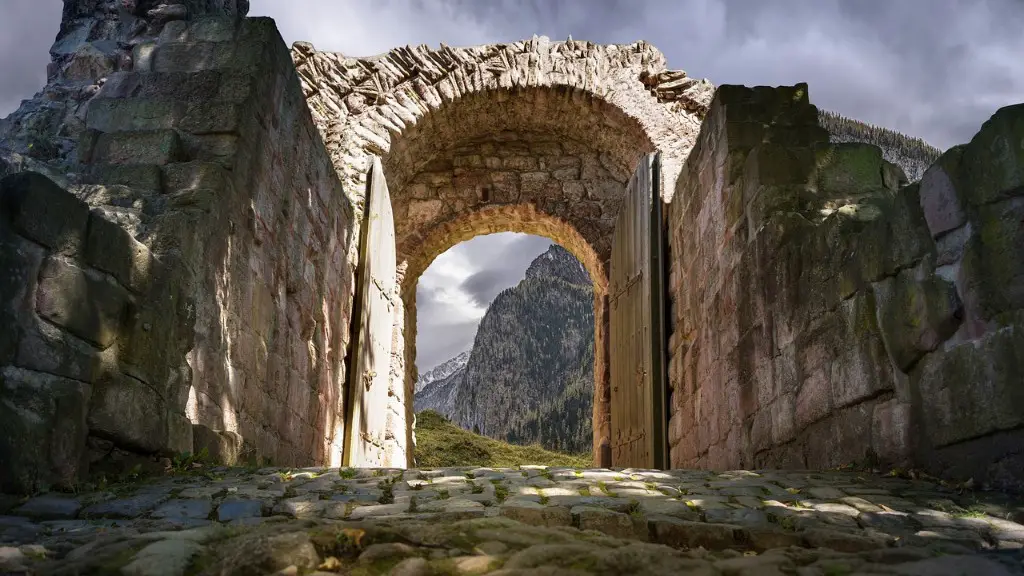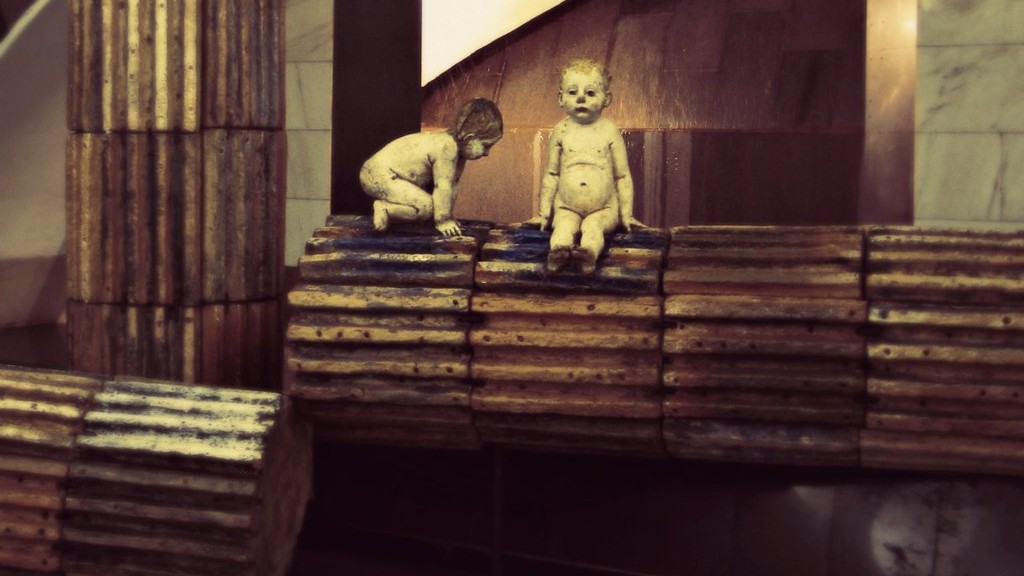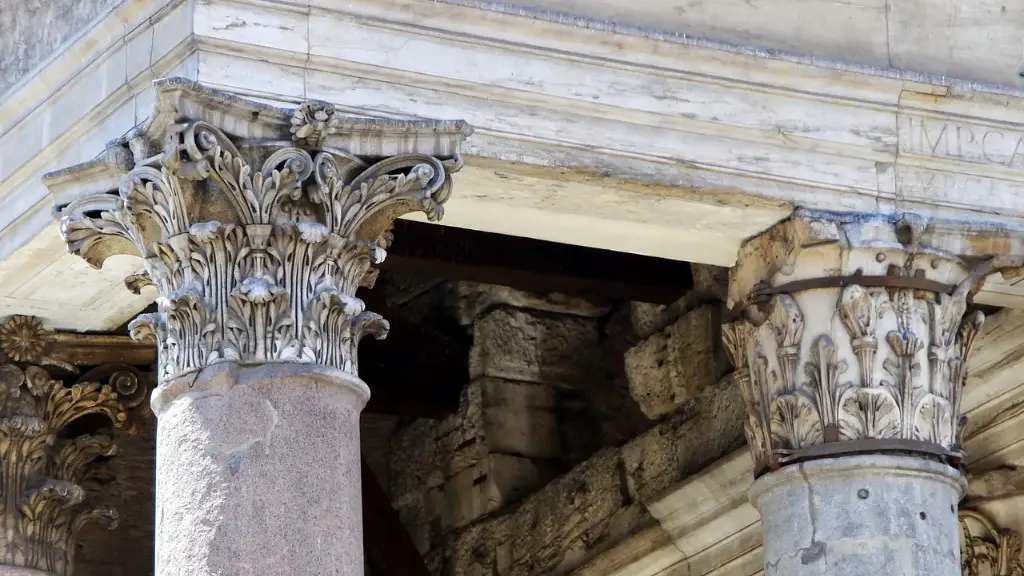Negative Impact on Class System
The Roman was known for its complex social class system, determined mainly by the wealth of a family or individual. However, the rise of widespread trading within Rome’s borders began to undermine this social system. The practice of trading goods and services allowed people from virtually all social levels to attain wealth – something that was previously much harder to do.
Trading created opportunities for those from lower classes to gain access to resources that weren’t available to them before. With such a sudden influx of capital and resources, the gap between the wealthy patricians and the poorer plebeians began to narrow significantly.
This newfound equality became much more noticeable in the political arena. Wealthy aristocrats, whose control of political offices reflected their social status, had to share their power with the more financially successful plebeians.
Another issue was the sharp rise in prices as a result of increased demand. Wealthy patricians, who could afford such luxuries, had an advantage over lower classes who could not meet the higher prices. This further exacerbated the divide between classes.
Although trading was beneficial to some, it also had its drawbacks. Wealthy aristocrats were particularly affected by the consequences of heavily expanding trade.
Rise in Corruption and Greed
With the rapid rise of wealth came a rise in corruption and greed. As individuals from varying backgrounds and levels of wealth began to take part in trading, some resorted to less than ethical means of amassing wealth. This included bribery, extortion, and even smuggling.
These types of activities became par for the course and began to soil the reputation of Rome’s trading industry. It left many questioning the morality of the system, resulting in fewer people taking part in it.
The rise in corruption led to an increase in the cost of goods and services, further turning people away from trading. This, combined with the negative reputation the trade industry had acquired, meant that fewer and fewer people were willing to take part.
To combat this, the Roman Empire instated certain regulations and sanctions that could be put in place upon those who violated the moral boundaries of trading. Although this provided a much needed safeguard against corruption, it didn’t do much to help Rome’s overall trading industry.
High Tax Rates
Another problem associated with trading was the high tax rates that were imposed by the Roman Empire. The taxes, which often reached up to 25%, discouraged people from participating in trading as it cut into their potential profits.
Furthermore, traders often had to pay daily fees to be able to access certain markets, adding yet another cost to their businesses. These high costs had the potential to drive traders out of the market and overseas to countries with more lenient tax policies.
The excessive taxation of Roman traders was also an issue for citizens of foreign countries. Foreigners were prevented from trading within Rome if they didn’t pay the taxes, leaving them at a major disadvantage when compared to their Roman counterparts.
In addition to taxation, traders were also subjected to high costs and fees for transporting goods and services. This, combined with the high taxes, made it even harder for any trader to make a profit.
Mix of Cultures
The rapid rise of international trade led to increased contact between the different cultures of the world. Although this had the potential to be beneficial, there were also some drawbacks.
The arrival of foreign traders often meant the introduction of foreign systems of governance and belief. This could ultimately lead to clashes between Rome’s own systems of belief and those of the foreigners.
In addition, increased trade with foreign parts was often accompanied by an influx of people from those parts. Such people were often met with distrust and suspicion by Roman citizens, leading to an uneasy relationship between Roman citizens and foreign traders.
Although some liked the new culture brought by these foreigners, others felt threatened by it. Trades between Rome and other groups would sometimes lead to cultural misunderstandings and tensions between the two societies.
Lack of Employment Opportunities
The growth of trading also came with a decrease in the availability of work for Roman citizens. Increased trading meant a surge of foreign products and services coming into Rome, many of which were cheaper and of better quality than those produced by Roman citizens.
This decrease in quality and affordability meant that few Roman citizens could compete in the market for goods and services. As a result, many citizens found themselves increasingly unable to find gainful employment. This lack of job opportunities horrified many Romans, leading to a great deal of discontentment.
Furthermore, the inflow of foreign products meant a decrease in demand for local goods. This led to an overall decrease in the production of goods and services, further decreasing the number of available jobs.
Lastly, the introduction of foreign currency caused a inflaiton in the Roman currency. With their currency quickly diminishing in value, Romans had less access to wealth and resources that they previously relied on.
Disadvantages for Roman Agriculture
The Roman Empire was largely agrarian and relied mostly on agricultural production for its economy. Despite its importance to Roman life, the agricultural industry was one of the sectors negatively affected by the rise of trade.
The influx of foreign products meant a decrease in the demand for Roman agricultural produce. With fewer people requiring Roman crops, fewer farmers were required, leading to unemployment. Further, Roman farmers could no longer compete with the cheaper foreign imports.
In addition to the loss of work, farmers had to continue to pay high taxes to the Roman government, without being able to produce enough food to recoup the cost.
Furthermore, farmers had to contend with the cost of buying equipment and tools that had previously been produced within Rome. The cost of these imports was also often too high for many farmers, leading to further decreases in their overall productivity.
Dispute over Tariffs and Policies
The increasing number of traders also made it difficult for the Roman Empire to keep track of tariffs and policies. Increased trade led to an increase in taxes and duties for both Roman citizens as well as foreigners.
The complex regulations and policies imposed by the Roman Empire meant that some traders were able to circumvent such rules and regulations. These traders were often able to turn a significant profit, due to their knowledge of how to work around the system.
It was also difficult for the Roman Empire to settle disputes with foreign traders. Furthermore, traders from foreign nations were often protected by their own governments, making it much harder for Rome to enforce its laws.
Unfortunately, disputes between Roman traders and their foreign counterparts were often not resolved peacefully.
Rise of Foreign Invasions
The frequent trading between foreign countries and the Roman Empire came with a darker consequence: increased foreign invasions. The Roman Empire found itself at the mercy of foreign invaders who often sought to take advantage of Rome’s weakened defenses.
These invasions were often accompanied by devastating wars that left Rome in ruins. The foreign invasions also led to a significant decrease in the economy, as the invaders often sought to take control of Rome’s resources.
The invasions also resulted in a great loss in human life, as the invaders often ruthlessly killed any Roman citizens who stood in their way.
Although trading allowed Rome to achieve economic stability, it had its drawbacks. From the undermining of class systems, to a rise in corruption and unfavourable taxation rates, to devastating invasions, it is clear that trading had its share of negative consequences.





